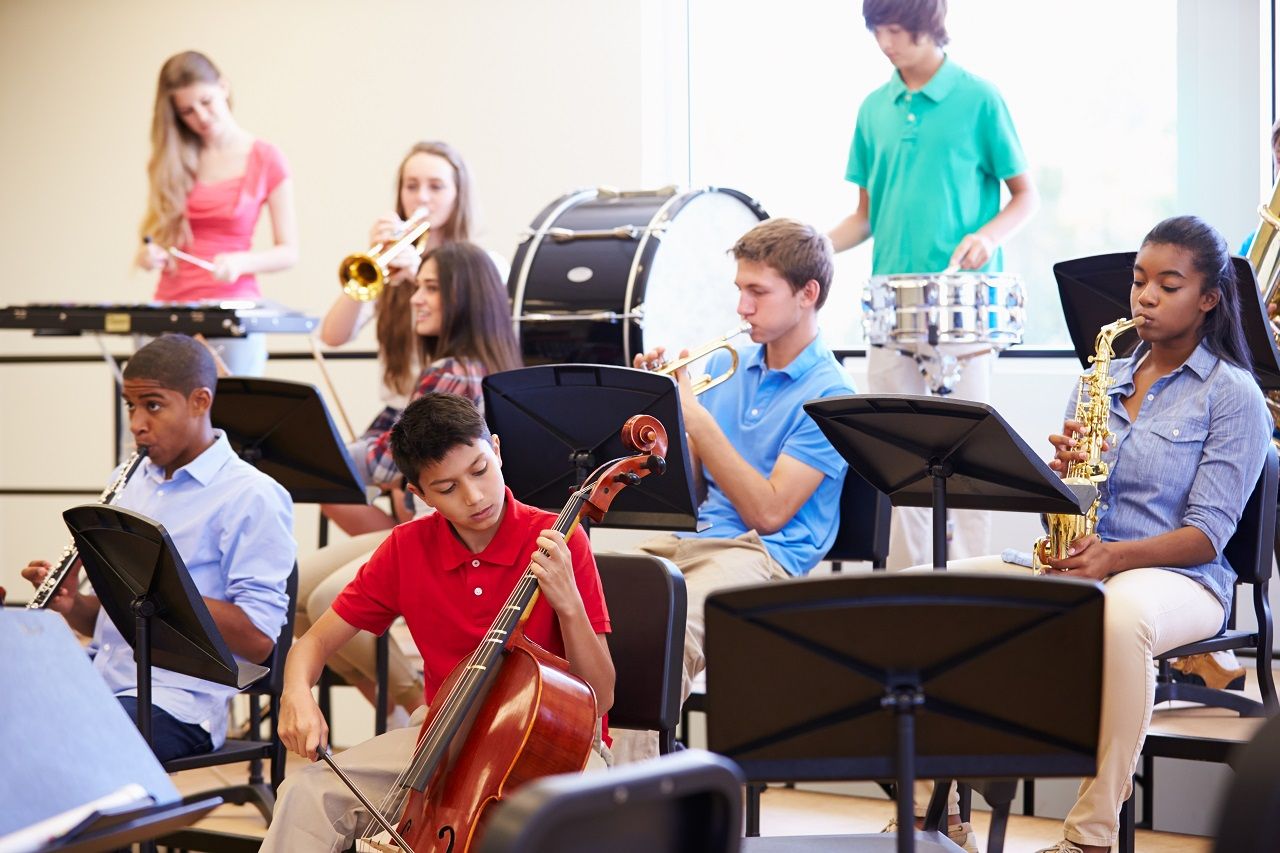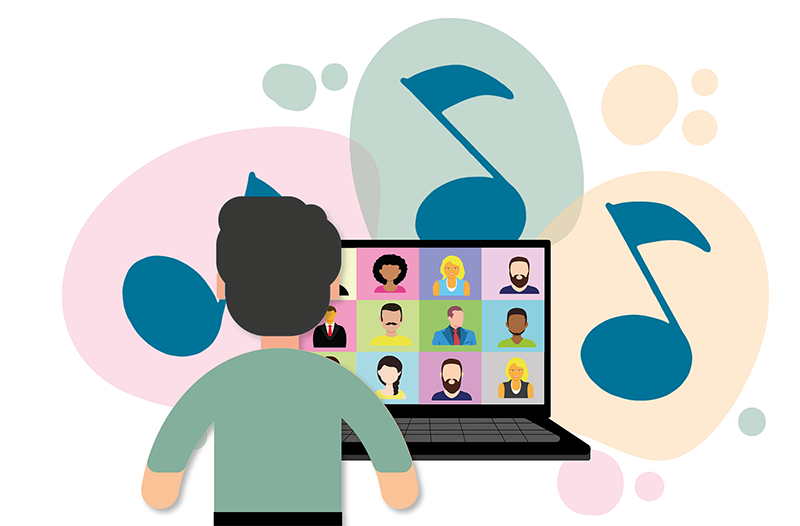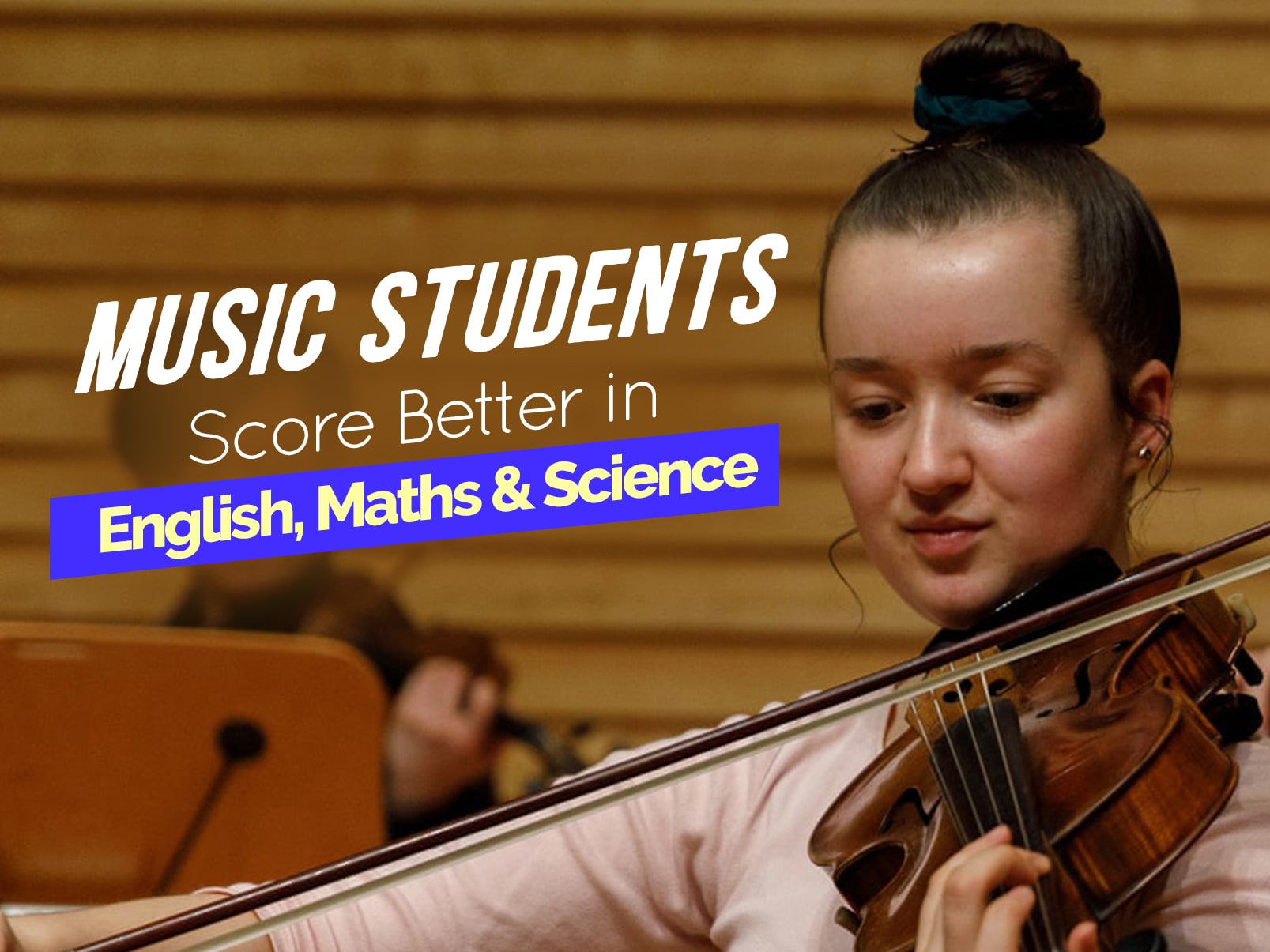How do you improve your academic scores in primary subjects like Maths, English and Science? Do you know that learning music will help you do? Music Students score better in English, Maths and Science than the Non-musical peers.
A study published by the American Psychological Association says that students who take music courses score better on exams than other subjects, including English, maths and science than non-musical peers.
Music Vs Non-Music Subjects

More They Study Music, The Better They Do
 Students who took part in music had higher achievement in music and had higher exam scores across all subjects, while these associations were more pronounced for instrumental music rather than vocal music. On average, the children who learned to play a musical instrument for many years playing in high school band and orchestra, were the equivalent of about one academic year ahead of their peers regarding their English, mathematics and science skills, as measured by their exam grades.
Students who took part in music had higher achievement in music and had higher exam scores across all subjects, while these associations were more pronounced for instrumental music rather than vocal music. On average, the children who learned to play a musical instrument for many years playing in high school band and orchestra, were the equivalent of about one academic year ahead of their peers regarding their English, mathematics and science skills, as measured by their exam grades.
Students’ Participation
 Over 112,000 student records studied, approximately 13% of the students had taken part in at least one music course in grade 10, 11 or 12. Qualifying music courses included concert band, conservatory piano, orchestra, jazz band, concert choir and vocal jazz. General music or guitar courses did not qualify as they required no previous music experience and, with general music, did not require music-making or practice.
Over 112,000 student records studied, approximately 13% of the students had taken part in at least one music course in grade 10, 11 or 12. Qualifying music courses included concert band, conservatory piano, orchestra, jazz band, concert choir and vocal jazz. General music or guitar courses did not qualify as they required no previous music experience and, with general music, did not require music-making or practice.
Advantages Of Learning Music
 Learning to play a musical instrument and playing in an ensemble is very demanding. A student has to learn to read music notation, develop eye-hand-mind coordination, develop keen listening skills, develop team skills for playing in an ensemble and develop the discipline to practice. All those learning experiences play a role in enhancing children's cognitive capacities and self-efficacy.
Learning to play a musical instrument and playing in an ensemble is very demanding. A student has to learn to read music notation, develop eye-hand-mind coordination, develop keen listening skills, develop team skills for playing in an ensemble and develop the discipline to practice. All those learning experiences play a role in enhancing children's cognitive capacities and self-efficacy.
Resources For Music Education
 Including the hiring of trained, specialized music educators, and band and orchestral instruments not available in elementary and secondary schools. The argument has frequently been that we need all our money to focus on math, science, and English. The irony is that music education–multiple years of high-quality instrumental learning and playing in a band or orchestra or singing in a choir at an advanced level may improve all-around academic achievement.
Including the hiring of trained, specialized music educators, and band and orchestral instruments not available in elementary and secondary schools. The argument has frequently been that we need all our money to focus on math, science, and English. The irony is that music education–multiple years of high-quality instrumental learning and playing in a band or orchestra or singing in a choir at an advanced level may improve all-around academic achievement.
Learn Music Online – Stay Home – Stay Safe

If you are a music lover, then learn music from your home. Meet our experts who teach piano, electronic keyboard, guitar online with our creative step-by-step structured curriculum. Get our additional course “Voice Culture” for free when you sign up for an Online Music Classroom membership!
Check out the video tutorial, sheet music, midi, karaoke and bundle to buy from Music Library!
We provide you with an opportunity to buy musical instruments from Musician Product on Amazon.
Join now at classroom.goldsmth.com
To Learn Music – Anytime – Anywhere
What is your opinion about this blog? Tell us in the comments below
 Reviewed by Goldsmth
on
April 07, 2021
Rating:
Reviewed by Goldsmth
on
April 07, 2021
Rating:









No comments: